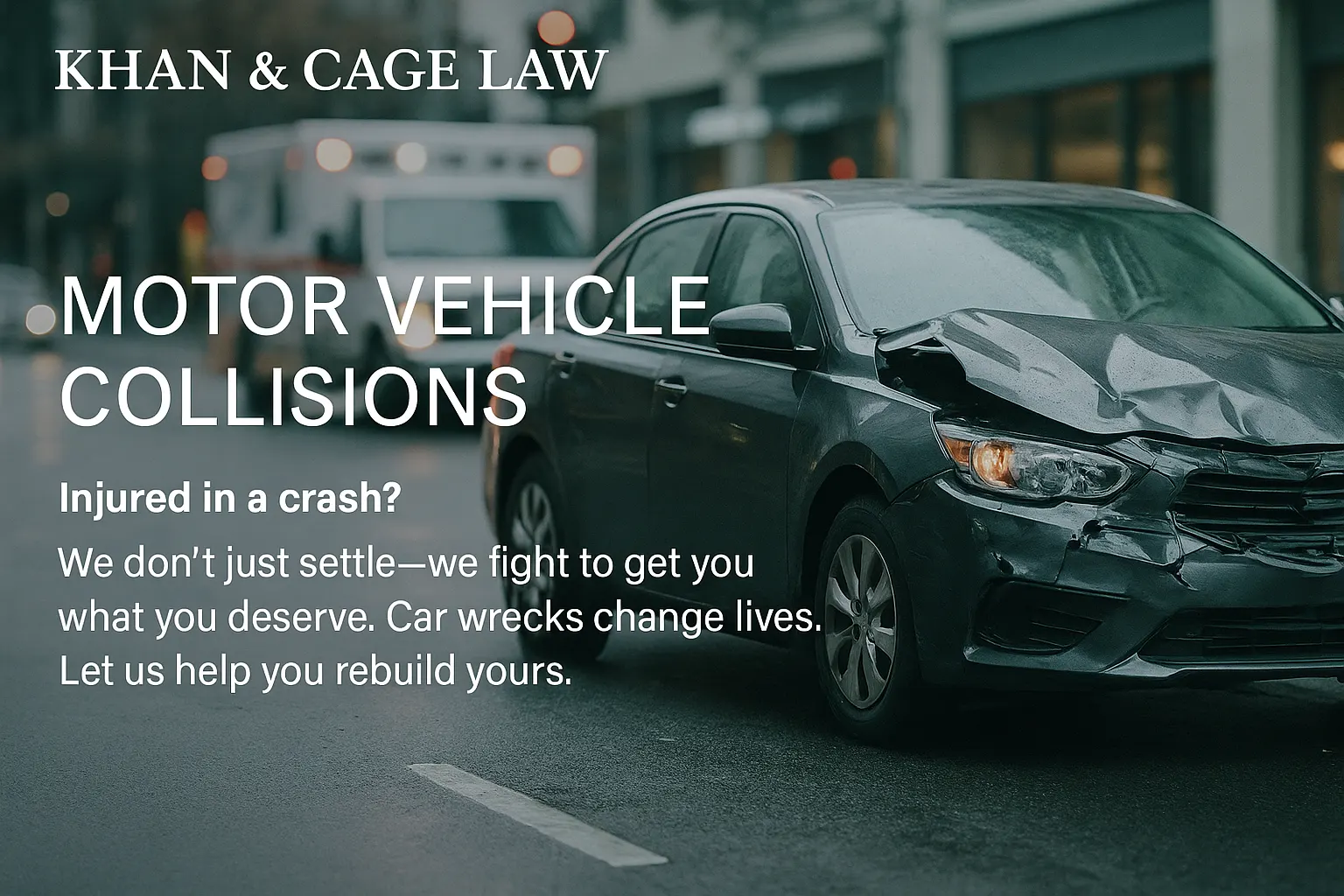
Do You Have a Case?
Motor Vehicle Collision
Helping You Recover After a Car Collisions
Car collisions happen in an instant, but their impact can last a lifetime. From physical injuries to mounting medical bills, lost wages, and emotional trauma the aftermath of a collision can overwhelm anyone.
At our firm, we fight to make sure you don’t face it alone. We help gather evidence, deal with aggressive insurance companies, and work tirelessly to recover the compensation you deserve.
Common Questions About Motor Vehicle Collision
What should I do immediately after a car collision?
First, check for injuries and call 911. If you are physically able, document the scene by taking photographs, exchanging insurance information, and gathering names of witnesses. Do not admit fault or make unnecessary statements at the scene. Seek medical attention right away even if you feel fine.
Do I need to report every collision to the police?
Yes. Under Texas law, you are required to report an collision if there are injuries, a fatality, or significant vehicle damage. Filing a police report can also be critical for proving fault later.
How is fault determined in a motor vehicle collision?
Fault is based on evidence such as:
- Police reports
- Witness statements
- Traffic camera or dashcam footage
- Vehicle damage analysis
- Accident reconstruction experts
Texas follows a modified comparative fault rule meaning you can recover damages as long as you are not more than 50% at fault, but your recovery will be reduced by your percentage of fault.
What types of compensation can I seek after a car collision?
You may be entitled to:
- Medical bills (past and future)
- Lost wages and loss of earning capacity
- Pain and suffering
- Emotional distress
- Property damage
- Loss of consortium (for severe injuries affecting relationships)
What if the other driver doesn’t have insurance?
If you have Uninsured/Underinsured Motorist (UM/UIM) coverage, your own insurance may step in to compensate you. We can also investigate whether other avenues of recovery exist such as a third-party claim or suing the individual directly.
How soon should I hire an attorney after a collision?
Immediately. Critical evidence like surveillance footage, eyewitness memories, and physical damage can disappear quickly. Insurance companies often push early settlements that undervalue your injuries. Having a lawyer early ensures your rights are protected from day one.
What if I was partly at fault for the collision?
You may still recover compensation under Texas' 51% Bar Rule. If you were less than 51% at fault, you can still recover damages but your award will be reduced by your percentage of fault.
The information on this website is provided for general informational purposes only and does not constitute legal advice. Nothing on this site should be interpreted as creating an attorney client relationship.
The information on this website is provided for general informational purposes only and does not constitute legal advice. Nothing on this site should be interpreted as creating an attorney client relationship.